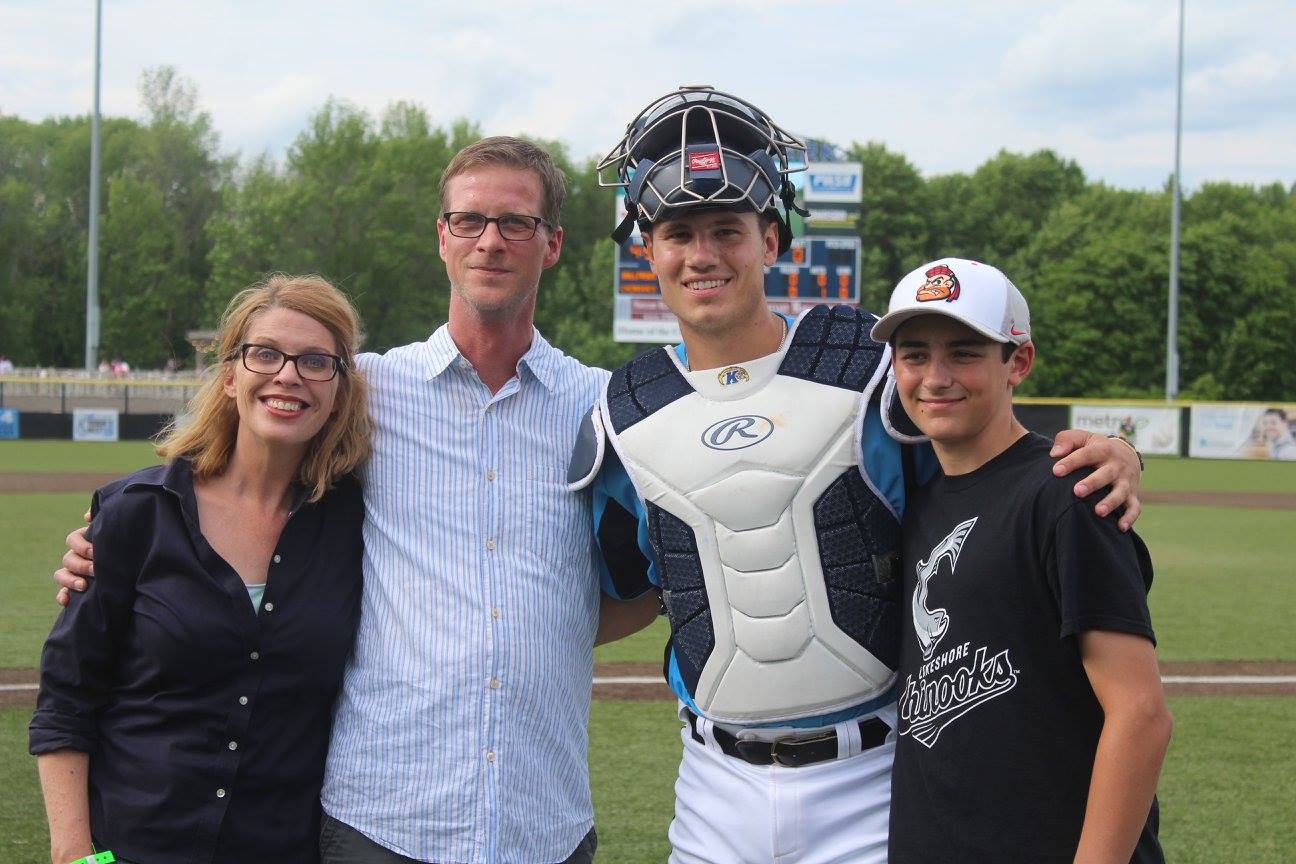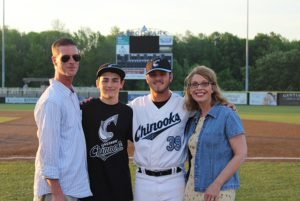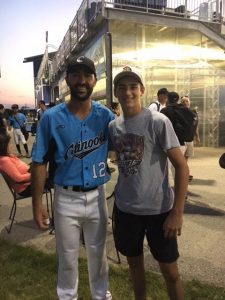
As a serial host family for the Lakeshore Chinooks, we’ve learned a thing or two about how to cohabitate with complete strangers under hectic conditions for unknown durations. It isn’t for everyone, but for those families who are open to hosting collegiate athletes, here are five tips to make it a remarkable experience for your family and your player.
There was Zac, Justin, Tim, Andy, Brock, Jake, and Jarrett … our boys of summer. We loved each and every one of them. They’ve hailed from big cities, Big Ten universities, small towns, and junior colleges. Their ages ranged from 18 to 22.
They studied business, pre-med, nursing, nutrition, sports and entertainment, and occupational therapy. Three players took online courses while living with us, and one prepared all summer for a certification exam in his field of study.
Two of them were pitchers, two were catchers, two were infielders, and one was an outfielder. All were exceptional in their positions, except when they were in slumps. They all hit slumps.
My husband, son, and I took in our first player in 2016. We were nervous at first because our  house is average, our lives were busy, and we didn’t feel qualified to support a collegiate athlete. We learned pretty quickly that the spare bedroom we had, the food we prepared, and our warmth and openness as a family turned out to be all that was needed. That player, and the six that followed, blew into our home and shared a significant life moment with us. None of them will ever be forgotten.
house is average, our lives were busy, and we didn’t feel qualified to support a collegiate athlete. We learned pretty quickly that the spare bedroom we had, the food we prepared, and our warmth and openness as a family turned out to be all that was needed. That player, and the six that followed, blew into our home and shared a significant life moment with us. None of them will ever be forgotten.
We are not hosting this year because we have a busy summer of house guests and travel plans, but will be the first to sign up in 2022.
If you’re reading this and considering becoming a host family for the Lakeshore Chinooks or any other sports team, I highly recommend it! Here are a few tips to help you know what you’re getting into:
1. Remember that in your home they aren’t athletes; they’re tired college students stuck somewhere between realizing their dreams and desperate for a break.
In addition to being among college baseball’s elite players, they shared many other commonalities. Among them, they were fans of “The Office” and “Friends.” They liked dogs, especially our 95-pound, overly exuberant Labrador. Breakfast was their favorite meal of the day and they each had their preferred way to make eggs. They were clean and they arrived expecting to do their own laundry. They missed their own families, especially their moms. And, when they could, they slept like bosses. Sound familiar? The athlete stays on the field. The young man coming into your home and joining your family is just like any other 18- to 22-year-old.
2. Stock your fridge. Stock your pantry. Buy a second fridge and stock that, too.
Whether they had a great game, a bad game, or didn’t play at all, our reaction was always the same, “there’s leftover lasagna in the fridge.” When we agreed to become a host family, we took an oath to significantly increase our food bills and food preparation routine to have good, healthy food available to them at all hours of the day. The team does feed players on game days (which are most days), but all of our players grew tired of the enhanced ballpark fare early in the season. In our introductory email, we covered preferences, restrictions, beverages, and eggs, and made sure we were well-stocked for their arrival.
3. Your time and attention will matter to them.
As an administrator at Concordia University, I especially enjoyed talking with them about their purpose, their passions, and their future plans. Our conversations rarely involved baseball and most took place in the middle of the night.
On a rare day away from baseball, we often took them to a Milwaukee Brewers game. We also showed off Milwaukee’s restaurants and festivals whenever possible. We played a lot of ping pong, watched Netflix, and put up with their country music. Two of them came to church with us whenever they could.
Whether they had a great game, a bad game, or didn’t play at all, our reaction was always the same, “there’s leftover lasagna in the fridge.”
4. Make friends with the other host families.
A sweet perk of hosting a player is free tickets to all home games at Kapco Park. If you’ve ever attended a game at Kapco you will know that there is a rowdy section behind home plate. That is reserved for the host families and we cheered on our team and our players like they were our own. These families became our closest friends and were going through exactly what we were. Even during the off-season, we got together to talk about our players and the future prospects for the team we all loved.
5. Prepare for hard goodbyes.
Our players faced injuries, illness, school challenges, and worst of all, road-weariness. Not even the team’s incredible athletic training staff (which mostly consists of CUW’s athletic trainers) could treat the dreaded diagnosis of being mentally and physically exhausted. Sometimes they stayed through the season, other times they left rather abruptly and not always by choice. That is a hard reality about their journey that they are learning and living in your home. I cried every single time I said goodbye.
One of our players got drafted and another signed as a free agent with an MLB team. Some of them are out working in their chosen fields, while others are in various stages of finishing up their programs. I have no doubt that they will go on to change the world. I’ve seen what they have endured and have been inspired by their bravery, fortitude, and confidence. We are all a little changed for having lived and grown together.
If you are at all intrigued by this story, I suggest you contact the Lakeshore Chinooks or a league in your hometown. I promise the experience will shape you and your family as much as it shapes your player.
—
If this story has inspired you, why not explore how you can help further Concordia's mission through giving.